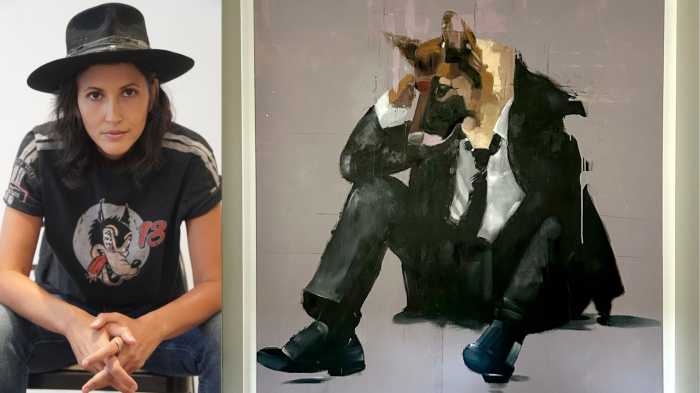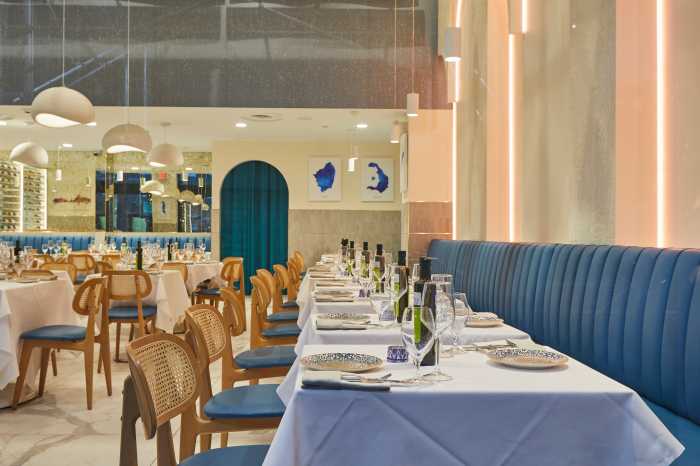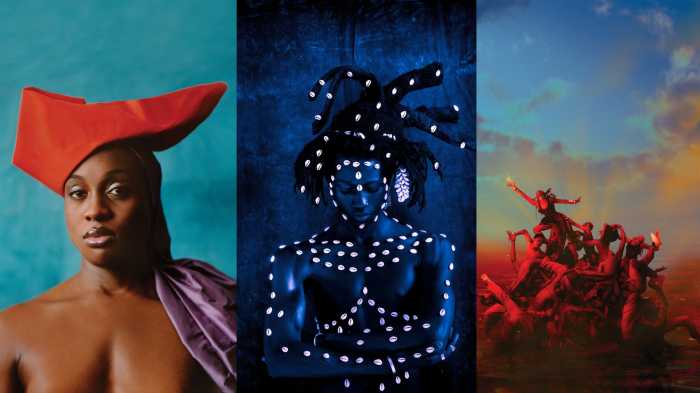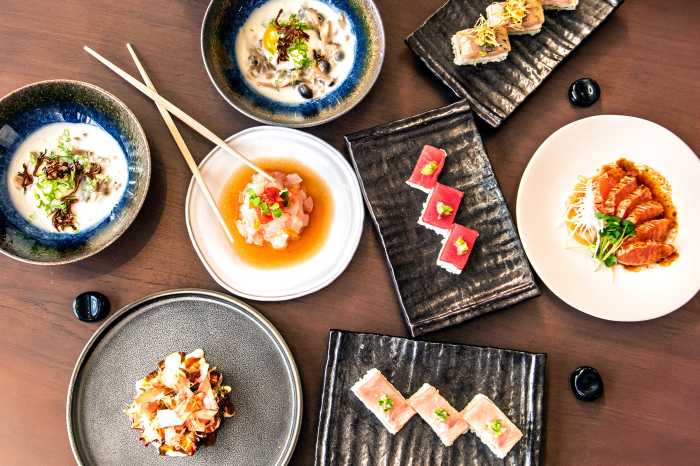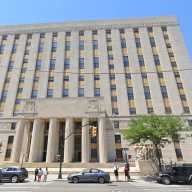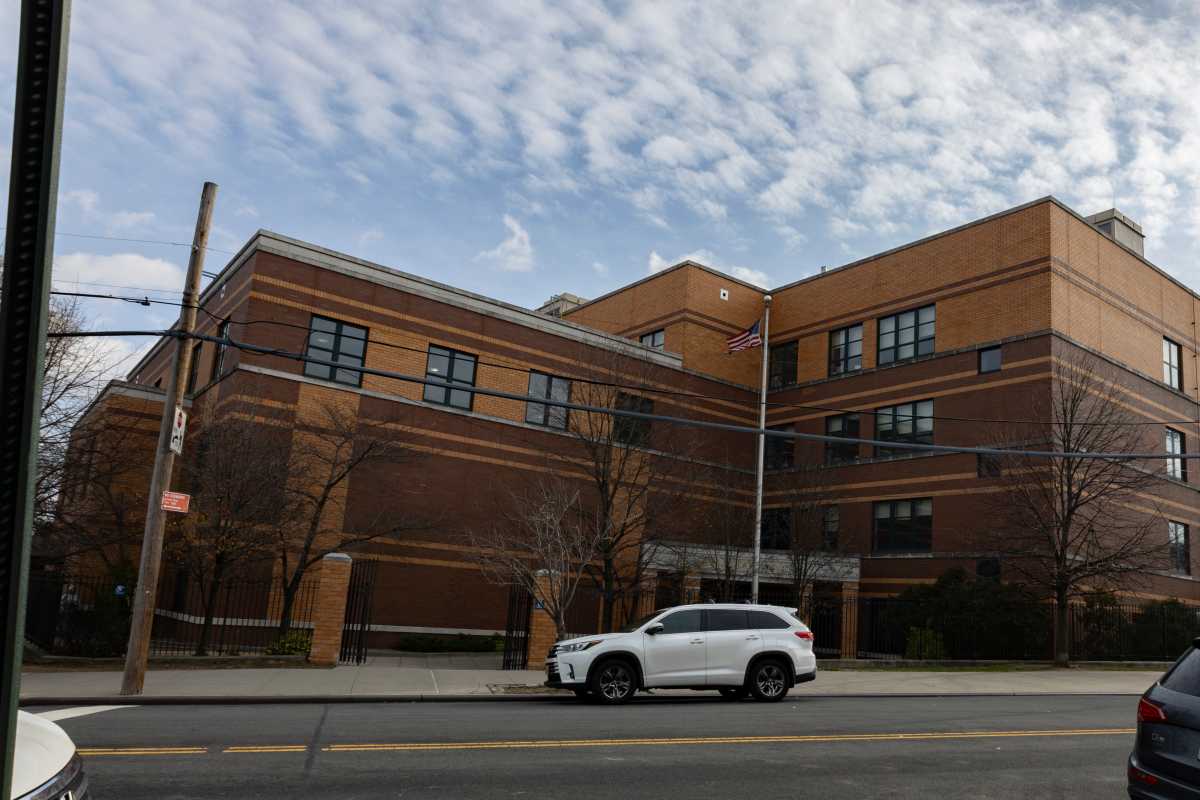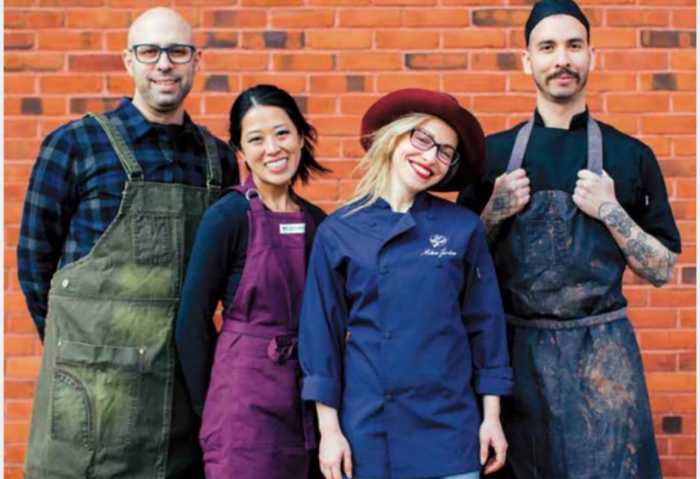By Michele Herman
Volume 74, Number 26 | October 27 – November 03 , 2004
Revolutions of bike wheels are the real revolution
In my recurring suburban nightmare, it’s morning and I’m determined to ride my bike to work. But I have trouble getting dressed because my closet is filled with clothes I’ve never laid eyes on. The hour grows late. My leg bones grow rubbery. When I finally throw open the garage door, I can’t seem to find my bike. As usual, I end up taking the car, the vehicle of least resistance.
As suburban nightmares go, I know it doesn’t sound very scary. No one dies or even has an accident. It’s just that little daily death-by-automobile that my unconscious fears. My unconscious, like the rest of me, spent its first 25 years in the suburbs, so it knows about the allures of car culture. It also knows the flip side, like that enervated feeling from sitting too long in traffic. It remembers the insane game of circling for a good parking space to avoid having to walk, oh, half a city block to the automatic door of the supermarket. It remembers how a body could feel like one big flabby vestigial organ.
When I wake up, I can’t tell you how grateful I am to find myself alive on Manhattan island, where it’s not only possible but pleasurable and easy to get most places I have to go on my own power. I’m so relieved I want to kiss my thigh muscles; the filthy old Raleigh leaning against the wall; the good traction of Manhattan pavement; and John Randel, Jr., the man in charge of the no-nonsense 1811 grid that provides such a variety of ways to get from point A to B.
I’ve written about bicycling many times before, and now, with the election so near, the desire has welled up again. This season I’m finding it increasingly hard to separate the personal from the political, and now I can’t help but think that bicycling is the magic pill for many of our nation’s biggest ills. Maybe I listened too hard to my parents’ stories of growing up during the Depression and World War II, or maybe I’m just weird, but I get the feeling that a lot of Americans would leap at the chance to make a real sacrifice right now the way they’re leaping to buy knitted ponchos. I think they’re just waiting for someone to ask. Through all three debates, I kept wishing the candidates (well, one of them) could look into the camera and say, without fear of losing votes and freaking out the populace: “My fellow Americans, I would like to ask a small favor of you. The best way, ladies and gentlemen, to combat our epidemic of childhood obesity, fight rising health-care costs, protect the environment and ease our nation’s addiction to Middle Eastern oil — a major component of the terrorist threat that our current administration will never fully acknowledge — is for all of us who are able to use our bikes for transportation.”
In early 2002, my friend and fellow cycling enthusiast Charlie Komanoff, an expert on the economics of energy, published a wonderful paper called “Ending the Oil Age: A Plan to Kick the Saudi Habit.” It includes two ridiculously doable proposals. The first lays out a plan to cut daily U.S. oil consumption by five percent over a period of six months, which he says represents almost two-thirds of imported Saudi Arabian oil. The second plan proposes a cut of 10 percent, which would cover three-quarters of our imports from the entire Persian Gulf. By far the greatest savings in both plans comes from a tiny sacrifice: asking Americans to eliminate one out of every 14 or one out of every 10 car trips.
One out of every 10 car trips: it sounds so simple I’m not sure whether to laugh or cry. If only it weren’t for human nature, which likes to put up such a fuss against the actions that provide the most lasting satisfaction. I picture my nightmare suburban self and wonder: what would it take for her to stop finding excuses and bike to work once every two weeks? Even here in the flat and compact city, using a bike for transportation still feels slightly iconoclastic for anyone who hasn’t yet tried it and been converted to its efficiency and myriad pleasures. It’s perceived as dangerous, slow and impractical. But like many pieces of received wisdom, these assumptions leave out half the argument. Cars are far more dangerous. Traffic jams interfere with the speed of most urban and suburban car trips. Finally, remind me how it’s practical to spend tens of thousands of dollars to buy a car, keep it running, insured and sheltered? How exactly is it practical for the public unthinkingly to donate billions of tax dollars to maintain our massive nationwide car infrastructure?
But I didn’t mean to preach. I’d rather talk about riding my bike across W. 11th St., specifically the block between W. Fourth and Bleecker. It’s an important westbound cross route for Village cyclists, because 13th St. is perpetually blocked by an earthwork involving a lot of wooden planks covering a frighteningly deep cavern. W. 11th is a beautiful block, with trees forming a huppa above the street, the aroma of cake coming from Magnolia, and views of my favorite independent bookstore and the Hudson River. The street must run ever so slightly downhill, because it’s possible to pedal 10 revolutions and coast the rest of the block. Every time I do it, which probably averages five times a week year round, I marvel anew at the technological miracle of the bicycle. I am balanced on two skinny wheels and I am sitting in a seat. I am basically resting, but I am also gliding silently and swiftly down the road.
At the end of my suburban nightmare, I sit in the cushy driver’s seat and make promises to myself. Tomorrow, I say, I will stop relying on this 10-ton hunk of metal and stop assuming that the steady supply of oil needed to power it is somehow my birthright. Tomorrow I will be a better environmentalist. Tomorrow I will start my morning in the fresh air. Tomorrow I will arrive at work with that serenity and tingle that comes from having exercised my own power.
The beauty of my real life in Manhattan is that I don’t need to call on willpower to use my own power. Biking is not a sacrifice for the good of the nation, the environment or my silhouette. It is a daily dose of joy.
Also Read: https://www.amny.com/news/the-villager-endorses-john-kerry-for-president-16/



